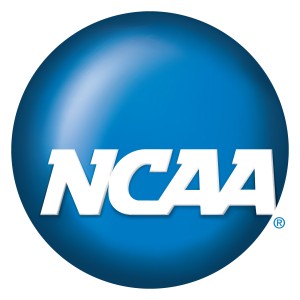The amount of academic fraud in colleges and universities across America in regard to student athletes is apparently more widespread than even the NCAA had realized. In an article by Brad Wolverton for The Chronicle of Higher Education (January 22, 2015) entitled: “NCAA Says It’s Investigating Academic Fraud  at 20 Colleges,” we learn that:
at 20 Colleges,” we learn that:
“The National Collegiate Athletic Association is investigating allegations of academic misconduct on 20 campuses, the association’s head of enforcement told The Chronicle on Tuesday. The cases are at various stages, from preliminary inquiry to awaiting a hearing with the Division I Committee on Infractions, and they involve a variety of missteps, including allegations that players received impermissible assistance from professors, academic advisers, or people outside of an athletic department. Eighteen of the cases are in Division I, one is in Division II, and one is in Division III. The official declined to name any of the colleges.”
Wolverton also explained that the number of programs cited for academic misconduct had jumped from 12 to 15 to 20 in just a few short weeks. There is evidence that allegations of academic fraud among athletes are increasing rather than decreasing. While the NCAA has 60 investigators, the number of people looking into academic fraud needs to be increased. At last count, the NCAA is investigating more than 120 cases of academic fraud.
Those in charge of NCAA investigations stated:
“The increase in alleged academic violations to a variety of factors, including stricter NCAA academic standards and a rise in cheating among college students in general.” (My italics)
Recent cases of Academic fraud among athletes have included Weber State University where: “a mathematics instructor there had helped five football players cheat,” the University of Georgia’s swimming program, and the University of North Carolina at Chapel Hill where “academic advisers there had directed hundreds of players to no-show classes.”
Improper associations
A core issue to the academic fraud is what we might call improper associations between the student athletes and those not even employed by the athletic departments.
“Those include professors, academic advisers who work outside of athletics, and people in the registrar’s office…The association is also seeing other people involved in players’ lives, including agents, amateur basketball coaches, or financial planners, taking inappropriate steps to help players gain eligibility.”
The firewalls have apparently been allowed to come down as the amount of cheating and academic fraud have increased. It is disturbing to say the least, and as a society that desires ever increasing amounts of instant gratification it will continue unless we can inject a good dosage of ethics into the cycle of academic fraud.
The “gatecrashers,” applying the improper pressure have no business being near the student athletes, and the NCAA has made that clear. Nevertheless, when bigger amounts of money was infused into collegiate sports and the opportunity on the part of student athlete to make even bigger money by eventually turning pro was realized in years past, it seemed to have trumped all academic reason and performance.
In these times, when a coach or agent or financial planner sees in an athlete the opportunity to have a big payday, or a big program or more money coming into the university’s coffers, they will seize it. Good ethics and a decent education, the original mission of the university all seem to go out of the window when money arrives on the scene. It is a sad, but true scenario in many cases.
As to cheating, it is endemic to our society, not just to student athletes. I have good friends who are college professors and they tell me horror stories all of the time about the shenanigans of some their students – and the threats the students make against the professors when they are caught cheating. The professors often “roll over,” because they are not backed up by their administrations. I am not making this up.
If there are no consequences for bad choices such as cheating, what is the sense of professors banging their heads against the wall to try to convert bad behaviors to good behaviors? It is a tough call. One thing is clear: professors should not act as parents; parents should have acted as parents many, many years before. All too often, the professors tell me, the parents actually make the problem worse.
As the NCAA is learning, when some (not all!) athletes are given the opportunity to cut academic corners, they will take it. Perhaps it is time for the NCAA to take up the cause, rather than fight the notion that student athletes earning money for the university should be compensated for their efforts. There must also be the realization that in some university programs for some student athletes, the track to their success will never be academic. There are some athletes, who by virtue of their athleticism, will help pay for a medical school building, but they will never some close to being physicians. Yes, you can try to turn on “light bulbs,” and awaken hidden academic desire, but beyond trying through a number of core courses, when does the pretense stop?
These are all harsh realities, I know, but ethics and pretense are two different things, and the discussions need to take place.
YOUR COMMENTS ARE WELCOME!


NCAA = FRAUDS!